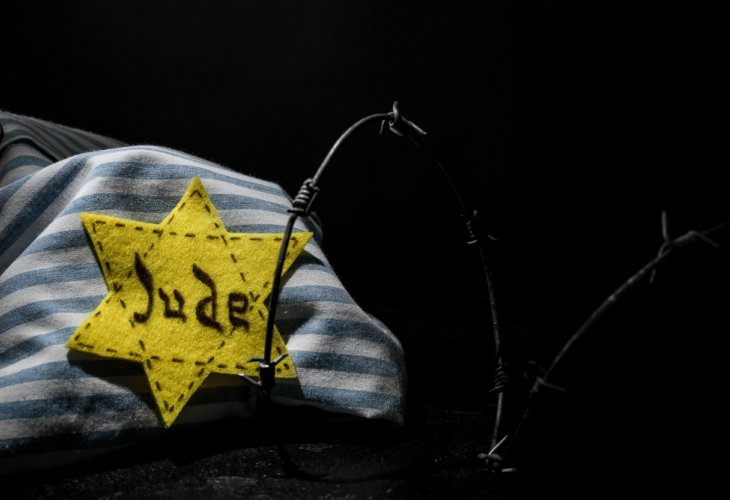The Holocaust
Holocaust Survivor Marianne Miller Shares Her Story of Survival and Renewal
From Budapest’s ghetto to Bergen-Belsen, a mother’s courage and a father’s resilience shaped a story of survival, family, and legacy
 (Photo: shutterstock)
(Photo: shutterstock)“I missed out on my childhood because of the war and later because of communism, poverty, and immigration to Israel. Perhaps my doll collection makes up for that,” says Holocaust survivor Marianne Miller in an interview with Israel Hayom, as she talks about the colorful and extensive doll collection that fills her home.
“After my parents, Violeta and Alfred Nobel, survived the Holocaust, they promised themselves that their children would be the happiest and most optimistic in the world. My mother carried a deep sense of guilt for bringing me into a world of certain death, and through miracles she saved me,” shares Miller, a mother of four — the third of whom is comedian Adir Miller.
This year marks 80 years since the Holocaust of Hungarian Jews. Miller traveled to the March of the Living in Budapest along with 80 survivors. She was born in Budapest, and in March 1944, during World War II, the Germans arrived there as well. “Jews were marked with a yellow star, moved into ghettos, and exterminated. It started with Jews in rural towns and then Jews living in Budapest,” she recalls. “Women and children were taken to the ghetto and from there sent on trains to Auschwitz. My extended family tried to hide, my father was taken to the Bergen-Belsen camp, and my mother and I were caught and sent to the ghetto.
A Mother’s Courage: Trading a Ring for Her Child’s Life
“I was two years old. It was bitterly cold, and I was in her arms. Then something amazing happened — my mother tore off her yellow star and ran to hide with me. A young Hungarian Nazi chased us and aimed his bayonet at us. He caught my mother and threatened to kill me before her eyes. My mother, who had nothing but her thin wedding ring, removed it from her finger, turned to the Nazi and told him: ‘All your jewelry is drenched in blood. The Day of Judgment will come and you’ll have to explain yourself. This ring has no blood on it. Take it and let me escape.’ At that moment, the Nazi took the ring and she fled with me.”
Violeta, Marianne’s mother, tried to save herself and her baby daughter, but some non-Jews refused to take them in. Others agreed, and that saved their lives. “In the last house we stayed in, a guest arrived and the landlady introduced us to her. The guest recognized that my mother was Jewish and told the landlady to run and inform the Gestapo. The landlady went outside to report us. My mother hugged me and said: ‘I’ve done everything to save you. This is our fate.’ But it wasn’t. The woman came back and said Russian soldiers who were liberating Hungary from the Nazis were in the street. My mother ran and knelt before the young Russian soldier. He smiled, gave me a piece of chocolate — and that’s how we survived.”
Her father, Freddy, was also born in Budapest. Every evening they set a place for him at the table, hoping he would return. Freddy suffered harassment at school, and the Germans sent him to Bergen-Belsen. “There they gave one slice of bread per week. My father, a disciplined athlete, divided the slice into seven cubes and ate one each day. He bathed in the snow. He later said that what kept him alive was the dream of seeing his wife and daughter again. When the camp was liberated by American soldiers, he weighed only 36 kilos. Once he regained strength, he took a backpack and set out to see who had lived and who had died.”
Reunion and Emotional Memories
A few months later, he returned. “My mother was in the bath and told me, ‘Marianne, open the door,’” she recounts. “There stood the man from the photograph — my father. Of course, I don’t remember everything as a continuous, clear memory because I was very young. But human beings have emotional memory stored away inside.”
In 1957, Marianne and her family immigrated to Israel. “For years I didn’t speak about the Holocaust,” she concludes. “Because I was such a little girl, I didn’t remember. I didn’t feel that I belonged to the generation of Holocaust survivors, which I saw as something tragic and pitiable. But my closest loved ones were murdered. When everyone passed away and when my mother closed her eyes for the last time, I felt as if they were all standing around my bed saying to me: ‘Get up, you’re the last one who can tell the story in the first person.’ I felt it was a command from Heaven.”

